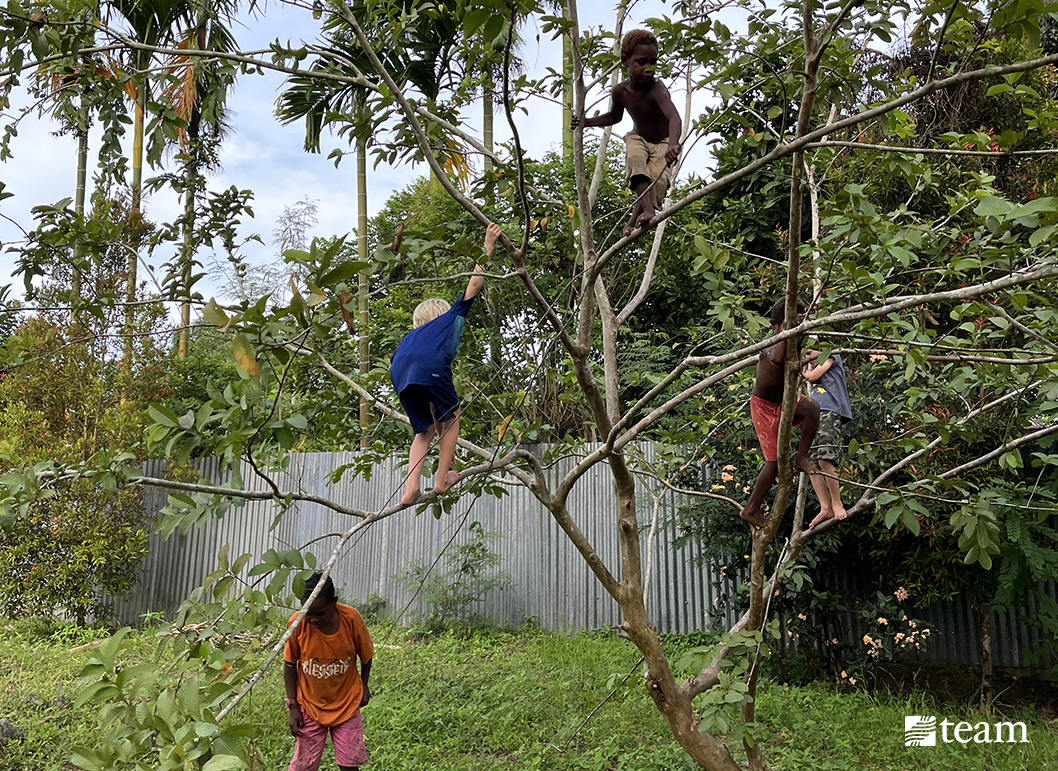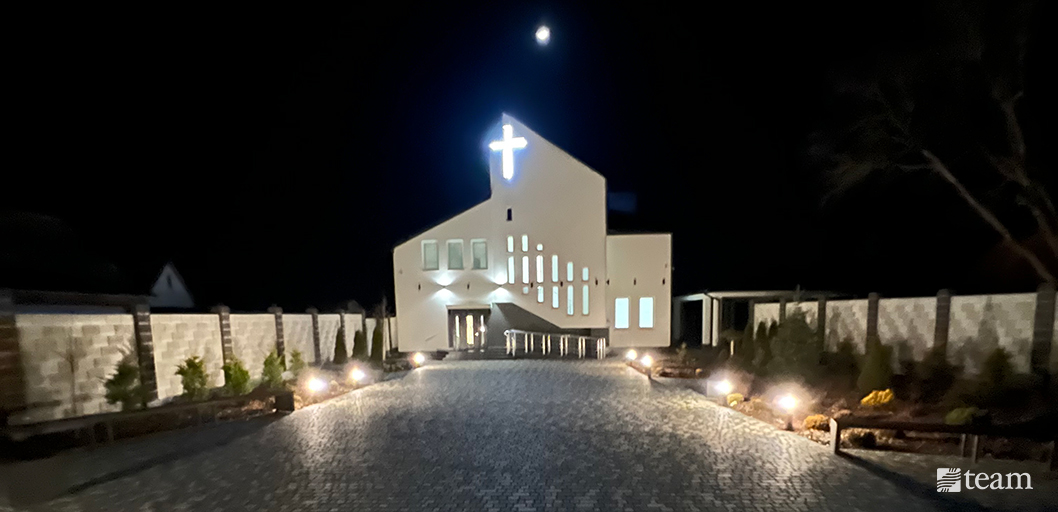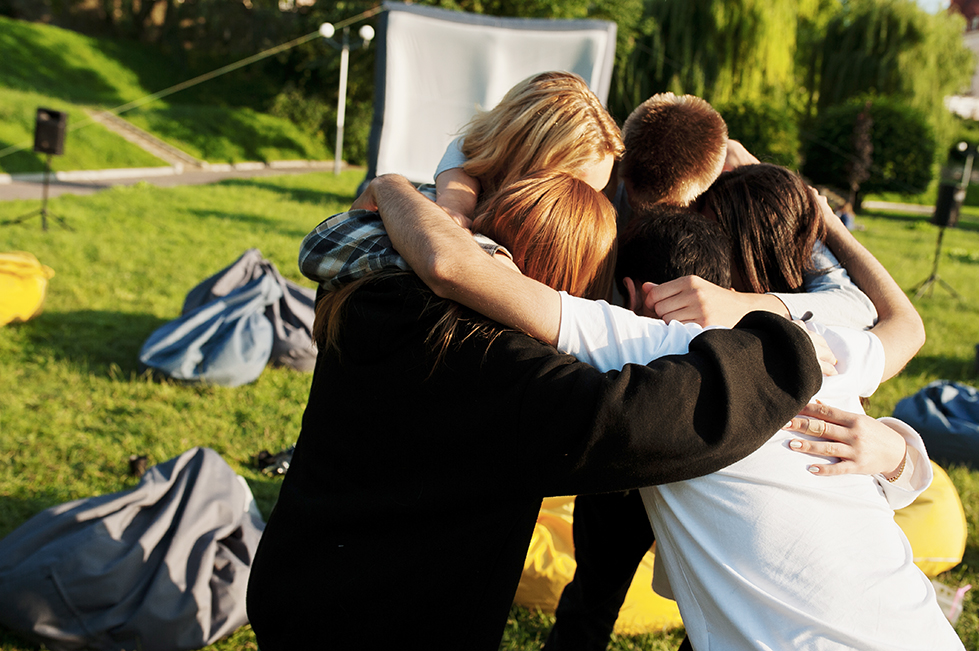
Ministry Updates
A People Highly Prized by God
August 18, 2022
by Suzanne Pearson
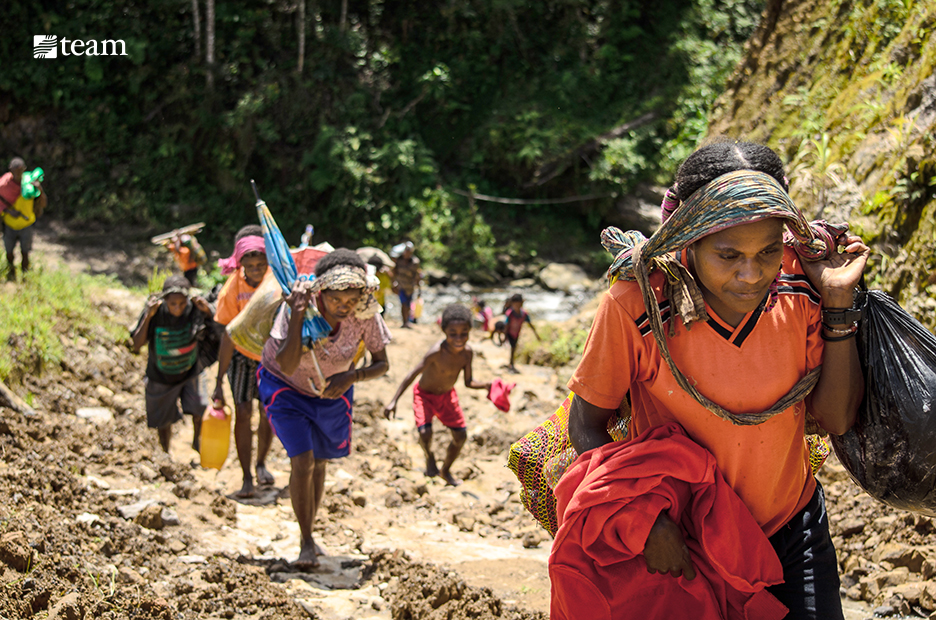
James didn’t mince words in his epistle to the early Church. “Suppose a brother or a sister is without clothes and daily food,” says James. “If one of you says to them, ‘Go in peace; keep warm and well fed,’ but does nothing about their physical needs, what good is it?” (James 2:15-16 NIV)
The effort to address both physical and spiritual needs is often referred to as “holistic ministry.” When these principles impact an entire community, the result is holistic community development or “transformational development.”
Michael Cochran, his wife Susan, and their four young children know first-hand that transformational community development changes lives. Serving the Meyah people in Papua, Indonesia since 2009, the Cochrans work in partnership with local churches to address a variety of holistic community development issues.
“A lot of people think that if you address the material need, then the problem is solved,” says Michael. “Transformational development says the problem isn’t just material lack. There’s a whole slew of interconnecting issues. And at the heart of it is really humanity’s fall into sin that has cascaded down.”
As the church takes on community development projects, spiritual discussions flow naturally. “The conversations are very organic,” he adds. “God cares about these issues that have a major impact on the lives of the Meyah community…What would He want us to live like?”
Landslide Stabilization Leads to a Deeper Need
The Cochrans’ first community development project addressed a significant problem in the Meyah community. Heavy rains often led to landslides along roadways, cutting people off from essential supplies and markets where they made their living. The Cochrans came alongside the church in implementing an erosion control system to stabilize landslide areas, providing safe passage for people traveling to and from their homes.
Consequently, the project became a catalyst for a much bigger idea. Men from the community grew the vetiver grass used in the erosion control process. One day in a community meeting, one of the men asked, “Is this something we could use to earn an income?”
“Instantly, the place got really quiet,” Michael remembers. “Everybody was super interested in what I was going to say about that. It was at that moment that I realized there’s a whole other aspect of this that people have in the back of their minds. That was the beginning of the realization that economic development was a huge felt need of the community.”
Divine Intervention for Clean Water and New Income
From that point forward, the Cochrans’ work picked up speed. The church began addressing the need for clean water. Deaths from dysentery were common and water filtration was desperately needed. Most filtration systems are expensive or require electricity which is not readily available in remote villages.
In a divine appointment, the Cochrans connected with a Dutch company that produces a gravity-based filtration system. The equipment is inexpensive and requires no chemicals or electricity. Not only did this device solve the Meyah tribe’s water problem, but local church pastors became local distributors of the product throughout their region, reaching other mountain people groups as well! Once again, God provided a solution to a critical, physical need of the people as well as a new source of income.
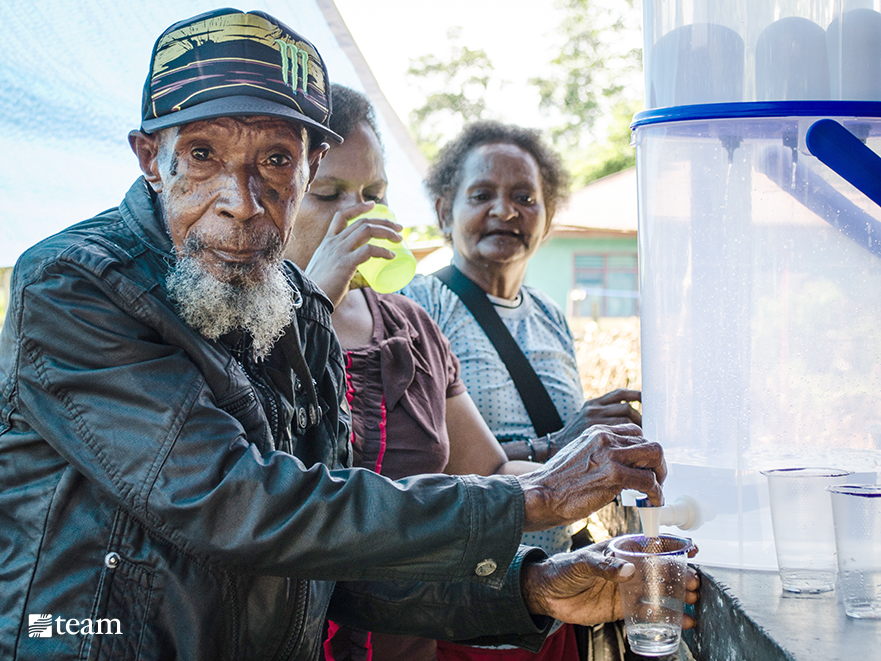
Clean water and a new source of income are both flowing into the Meyah community.
A Highly Prized Product from People Highly Prized by God
With two major successes under their belt, the Meyah church might have thought God was done surprising them. Little did they know their most widespread impact was yet to come. Remember the vetiver grass that aids in erosion control? The Cochrans connected with a specialist in Hawaii who developed a method to distill the vetiver roots into an essential oil. And not just any essential oil, but one of the few in the world that can’t be reproduced synthetically.
Suddenly, the Meyah people had a rare commodity on their hands. They rallied several local churches together to raise $9,000 to purchase the necessary equipment to produce the oil. Soon after, Cenderawasih Aromatics was born. This humble Papuan people group now fills orders for their highly prized oil from buyers in the US, Canada, China, Japan, and Europe!
The effect this enterprise had on the hearts of the Meyah people cannot be quantified. Often Papuan people are looked down on by those of other ethnic groups and it is difficult for them not to internalize that message. “But now they have this amazing product they’re making that people from all over the world want to buy,” says Susan. “That just does something for your identity, realizing that God created you as an image-bearer of God with a specific role to meaningfully contribute to this world.”
Michael agrees. “We have a lot of discussions about how God works through His people. It’s not because of our intellect that He prizes us. He prizes us because we are his beloved creation, His adopted sons and daughters.”
Looking to the Future: A Place to Learn, Produce, and Grow
The future trajectory for the Meyah church and community is exciting. The Cochrans now turn their attention to building what they call an Appropriate Technology Center. Appropriate Technology refers to technology and equipment that are appropriate for a given location. In simple terms, the training center will facilitate hands-on ministries, serve as a place for equipping individuals to minister to the felt needs of their communities in a holistic way, and be a place where equipment for various projects can be constructed.
The Lord provided a location for the center on the campus of Erikson-Tritt Theological College. ETTC was founded by TEAM missionaries in 1959 and is now run by local leaders. The actual build site is on the foundation of a structure used for many years by TEAM as a storage facility. As of this writing, just under $9,000 of the total cost to outfit the Appropriate Technology Center remains to be funded.
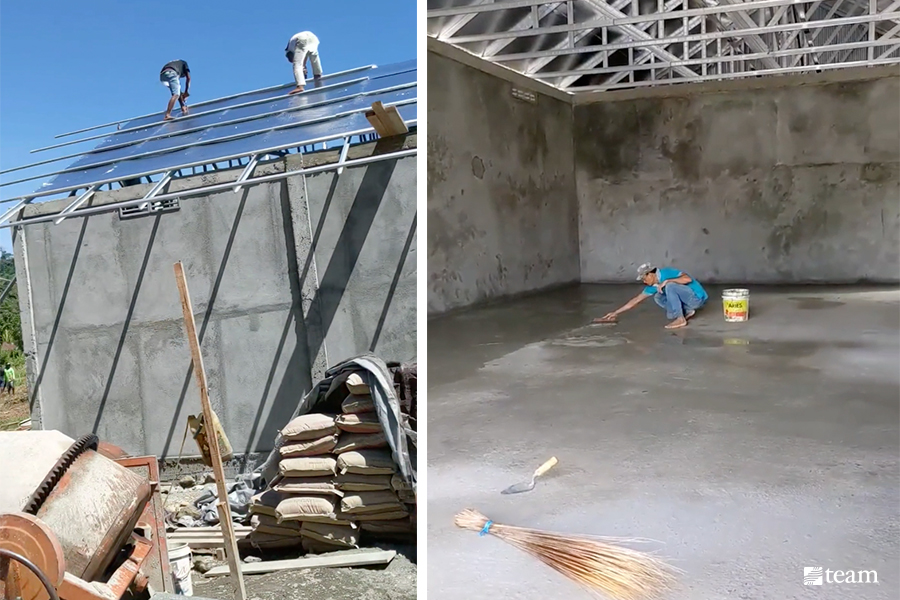
Once completed, the Appropriate Technology Center will further engage the local church in addressing holistic development needs.
The Cochrans and the Meyah church faithfully pray and trust God for the remaining funds, despite setbacks related to inflation in the global economy. Another big prayer is that God will raise up others to help with teach and training. “That’s a prayer as we begin,” says Susan. “That we can identify people that have skills [in the needed areas] and a heart for that type of ministry.”
Whatever lies ahead, the Cochran family and Meyah church pastors know that God works through active partnerships in His global Church. “The process of involving the community in the decision-making process is in itself transformative,” says Michael. “It helps them come to a better understanding that God has created them as intelligent, beautiful beings. He’s given them skills to impact the world for His Kingdom.”
God is using people like you to make a difference in Papua through the Cochrans’ holistic ministry. Give today to further His kingdom in Indonesia.

